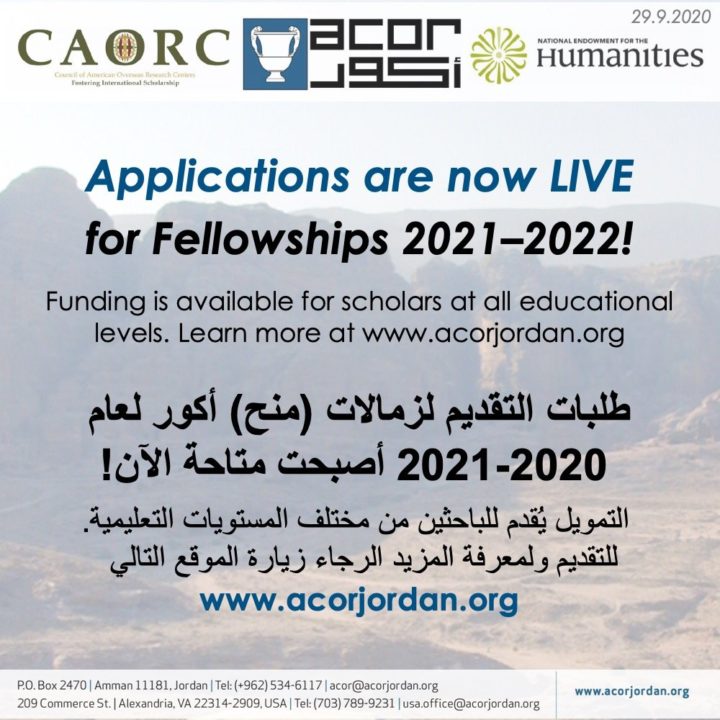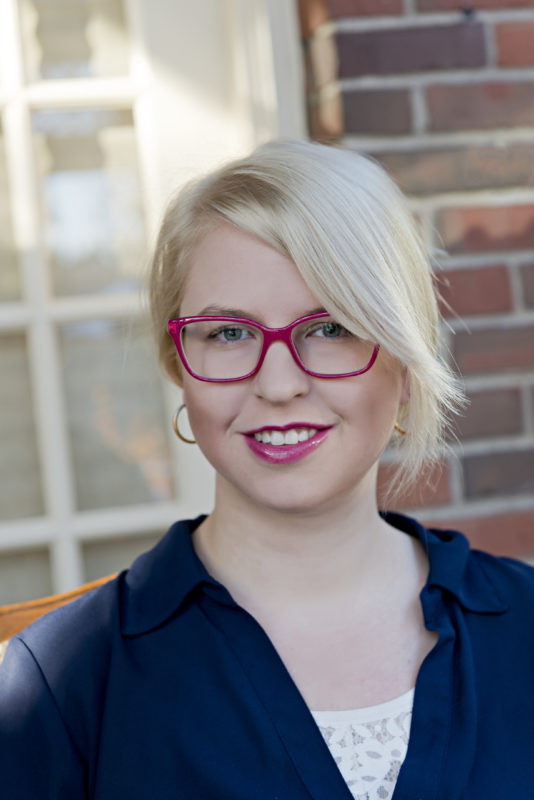This written interview is part of a new series we are launching on Insights, called “Ask A Scholar,” through which we hope to highlight the personal experiences of fellows and other affiliated researchers. The below conversation, with ACOR-CAORC Pre-Doctoral Fellow Morgen Chalmiers, who is in residence at ACOR during fall 2020, took place by email in mid-November.
Morgen, can you tell us a little more about yourself and what brings you to Jordan?
I’m a student in the joint MD/PhD program at the University of California, San Diego, specializing in medical anthropology. My larger dissertation project examines systems of reproductive healthcare provision for displaced populations and considers how experiences of forced migration influence reproductive subjectivity and decision-making. My research in Jordan builds upon prior work with the Syrian refugee community in San Diego while also focusing on communicative processes and interactions facilitated by and within the humanitarian healthcare sector.
More generally, my ethnographic fieldwork and clinical practice are informed by the paradigm of reproductive justice and a commitment to addressing health disparities through an intersectional feminist framework. I’m especially passionate about integrating anthropological insights into clinical practice and health policy through interdisciplinary collaboration. After completing my PhD and MD, I plan to pursue a residency in obstetrics and gynecology and seek a joint appointment at a research university as a practicing physician and professor in the social sciences.
What is one thing someone might not know about your area of study?

The birth of anthropology as a discipline was deeply linked to Euro-American colonialism and imperial rule, a history that has shaped both our methodological approaches and some of the most foundational assumptions of our scholarship—even basic questions like who or what is appropriate for an anthropologist to study. Over the last several decades, feminist ethnographers have sought to radically transform and decolonize anthropology by integrating insights and methods developed by critical theorists in their study of race, gender, and social structures. It’s a very exciting time to be a student and witness these innovative efforts to reinvent the discipline.
Do you have a favorite cultural place in Jordan? If so, what is special about it?
When traveling, there’s a tendency to seek out “authentic” cultural experiences, whether this means consuming “exotic” foods or watching a “traditional” dance performance. However, my graduate work in anthropology and critical gender studies has emphasized that “culture” encompasses much more than symbols, practices, and performances—it’s equally present (and reproduced) within everyday interactions. So I think my favorite cultural activity would be chatting and sharing a meal with friends at one of our favorite restaurants (Khal is always a popular choice).

Morgen A. Chalmiers is a Ph.D. candidate in psychological and medical anthropology at the University of California, San Diego and an M.D. student in the Medical Scientist Training Program at UC San Diego School of Medicine. She is the recipient of an ACOR-CAORC Pre-Doctoral Fellowship 2020–2021. Her anthropological research broadly examines women’s experiences of reproductive healthcare using the tools and theoretical lens of psychological anthropology. She works with a collaborative team across the UC campuses to conduct community-engaged, multi-sited research on resettled refugee women’s access to reproductive healthcare. She is passionate about integrating anthropological insights into clinical practice and health policy through interdisciplinary collaboration. To read more about her work and publications, visit morgenchalmiers.com.